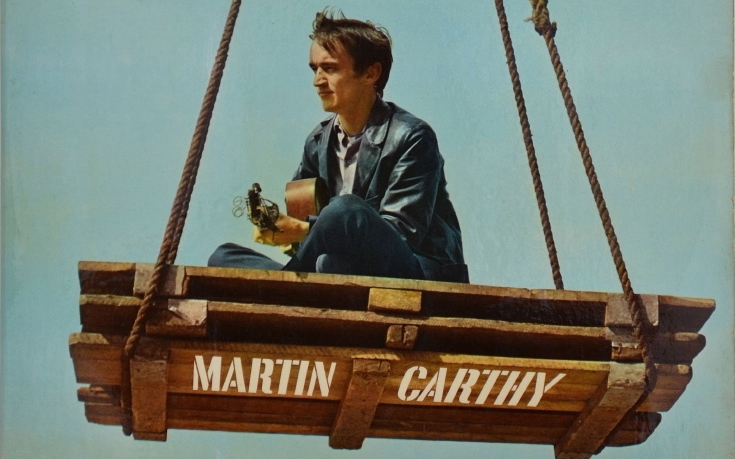
A five track introduction to Martin Carthy
Martin Carthy is a folk singer and guitarist held in the highest regard among the folk music scene. A recipient of the Lifetime achievement award from the BBC Radio 2 Folk Awards; he is described by the label that re-issued his early work as ‘the most creative folksong interpreter of his generation’ and it is said that his arrangements of traditional songs influenced works by Bob Dylan and Paul Simon as well as countless others. Active for over fifty years, it’s a pleasure to welcome this folk music custodian back to Band on the Wall in January. Here is a brief introduction to a man who has been a part of so many important projects, that we implore you to investigate further ahead of the show.
Martin Carthy – The Wind that Shakes The Barley
Topic records, who reissued Carthy’s eponymous debut album, describe him as ‘the most creative folksong interpreter of his generation’, adding that ‘his singing and guitar-playing have been imitated wherever the revival has reached, across North America and Europe no less than in Britain’. His interpretation of The Wind that Shakes the Barley, a poem written by Irish scholar Robert Dwyer Joyce in the 19th century, captures the sorrow of the central character, a young rebel who is to sacrifice his relationship to fight against British colonial rule in the 1798 rebellion and includes the fourth verse of the 1861 poem, which many song covers leave out. Released in 1965, his debut album features fiddler Dave Swarbrick, with whom Carthy would record many albums, and is one of the finest albums of the mid-sixties folk revival.
https://www.youtube.com/watch?v=Hv6Udvj2Y5A
Steeleye Span – Boys of Bedlam
Carthy joined Steeleye Span for their second album Please To See The King, a stylistic departure from their debut album with no drums present and the depature of vocalist Gay Woods. Boys of Bedlam has it’s origins in the 17th century poem Tom o’ Bedlam and begins with Carthy and Maddy Prior’s beautiful, harmonised voices, before unfolding into a string-laden ensemble arrangement. Melody Maker made the album their folk album of the year and this song, along with their widely recognised version of The Blacksmith, is one of it’s finest tracks.
Martin Carthy & Dave Swarbrick – Byker Hill
Due to the intricate arrangements and nuanced performances that Carthy and Swarbrick deliver on Byker Hill, it is seen as their most audacious and accomplished recording. Said to be the result of the pair being afforded more time to prepare ahead of longer studio sessions, it’s a step forward from their earlier recordings and now considered a benchmark in folk music.
Albion Country Band – I Was A Young Man
The early seventies also saw Carthy playing with founding members of Fairport Convention in the Albion Country Band, a short-lived outfit which was assembled after the recording of the album No Roses, upon which Shirley Collins sang. Battle of the Field was released three years after it was recorded, due to the band splitting up shortly after in 1973, but contains many fine folk-rock recordings, including this arrangement of I Was a Young Man, featuring Sue Harris’ hammered dulcimer playing. Carthy also included the song on his 1972 album Shearwater.
Waterson-Carthy – With Kitty I’ll Go
Waterson-Carthy is very much a family affair, with Martin, his wife Norma Waterson and their daughter Eliza Carthy making up the group. Norma Waterson began her music career with The Watersons in the early sixties, but only came to release her first solo album in 1996, two years after this eponymous debut from Wateron-Carthy. The three perform together beautifully on the album, just as they do in this live performance of With Kitty I’ll Go.







